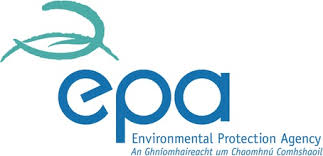Research Projects
List of ongoing and past research projects
Ongoing Projects
REBUILD: The CirculaR Economy Buildings as Material Banks
Nature presents us with magnificent examples of cycles, where abundant nutrients and water are continually reused, with the remnants becoming immediate resources for others. Despite these awe-inspiring examples existing for centuries, humans persist in the linear "make, use, dispose" approach. Fortunately, a shift has begun with the concept of the circular economy, aiming to close loops and transform goods near the end of their service life into resources for others. The correct adoption of the circular economy yields immediate positive effects, ranging from reducing greenhouse emissions to fostering workforce growth. The notion of the circular economy has evolved beyond the simple idea of reusing and recycling materials. It now encompasses sustainable economic growth and positive impact on our environment through resource optimization and consumption efficiency. Essentially, the circular economy is a means to achieve sustainable development. This transition has necessitated changes in production chains and consumption models, leading to the redesign of industrial systems. While the circular economy has gained traction in certain industries like clothing, it is now being actively promoted in other sectors, including remanufacturing in the fields of computers, electronics, optics, and electrical equipment. Extracting, processing, producing, and consuming materials and products are responsible for a significant share of greenhouse gas emissions, accounting for a quarter in Europe and a third globally. The construction sector, in particular, stands to gain immense benefits from embracing circular economy practices. Recognising that construction, renovation, deconstruction, and demolition activities contribute significantly to embodied carbon emissions, which amounted to 3.67 million tonnes of carbon dioxide globally in 2019, addressing this issue becomes paramount. The construction sector heavily relies on carbon-intensive building materials. In the REBUILD project, our goal is to reimagine buildings as material banks and investigate the implications of reusing, optimising, changing, and testing a diverse range of building materials. This project aims to catalyse a breakthrough for the circular economy in the construction sector by addressing key challenges prevalent in current construction practices across three main areas. Firstly, we will strive to understand the primary barriers hindering the sector's transition to circular economy practices. Secondly, we will identify the key enablers that will facilitate the shift from passive linear economy practices to circular economy practices within the construction sector. Lastly, we will delve into studying the implications of adopting circular economy activities in construction, including estimating potential carbon emissions savings and examining the consequences of reducing the exportation of building materials that are currently designated for treatment. The methodologies employed in this project extend beyond the construction sector, contributing to the wider adoption of circular economy practices in other domains. As a holistic concept, the project will benefit society economically, socially, and environmentally. Economically, this project will contribute to Irish competitiveness by optimising the utilisation and allocation of materials. Environmentally, it will naturally reduce negative impacts on the environment, such as carbon emissions saved by making the range of selected materials more circular. Socially, the project will pave the way to create additional employment opportunities and promote social inclusion.
Funding Agency: Environmental Protection Agency
Grant: c.€450K
Duration: 30 months
Started on October 2024
Principal Investigator: Dr. Edgar Galván
Co-Principal Investigator: Prof. Markus Helfert
Team Members: Dr. Mark Kelly, Dr. Lucia Vazquez Mendoza, Dr. Fergal Stapleton

This project is funded under the EPA Research Programme 2021-2030. The EPA Research Programme is a Government of Ireland initiative funded by the Department of the Environment, Climate and Communications.
Past Projects
Stochastic Bio-inspired Evolutionary Algorithms for Optimisation in Dynamic Environments
The goal of this project is to investigate novel Evolutionary Algorithms (EAs) approaches to address dynamic problems (DP). The proposed research has three main aspects (a) designing and evaluating new EAs in DP via the study and analysis of representations' properties, (b) analysing the features of dynamic problems, and (3) adapting developed EA approaches to solve dynamic energy problems.
Funding Agency: Research Ireland (formerly Irish Research Council) and the European Commission’s Marie Curie Action.
Grant: €267,000
Date: 2014-2017
Principal Investigator: Dr. Edgar Galván


Evolutionary Computing Brains: Transforming Artificial Neural Networks Through Biologically-Inspired Inheritance
Machine learning has advanced significantly in the past decade, achieving human-level performance in tasks like image classification. This progress is driven by bio-inspired artificial neural networks (ANNs), increased computational power, large datasets, and expert-designed optimisation methods. However, current ANNs learn by extracting patterns from data, which differs greatly from how humans and animals learn—through experience and evolutionary adaptation encoded in their genes.
Evolutionary algorithms (EAs) mimic natural evolution, optimising solutions over generations. The ecBrains project aims to transform ANNs by integrating bio-inspired inherited behavior programs, similar to how animals learn. This approach will reduce reliance on human expertise, shorten training times, and improve performance. By combining learned and inherited behaviors, ecBrains will pioneer a new paradigm in AI, achieving faster, more efficient learning and advancing artificial intelligence to new heights.
Funding Agency: Enterprise Ireland
Grant: c.€14,144
Date: 2021
Principal Investigator: Dr. Edgar Galván

Rhythms of Life: Exploring the Time Dimensions of Human Health and Wellbeing
The primary objective of this project is to assemble a highly collaborative, transdisciplinary team comprising experts from diverse fields, including biology, behavioural neurobiology, artificial intelligence (AI), and data science. Together, we aim to establish a cutting-edge research theme that adopts a data-driven approach to investigate the intricate timing mechanisms responsible for synchronizing human physiology with environmental cues. These mechanisms, often referred to as circadian rhythms, play a critical role in regulating essential biological processes such as sleep-wake cycles, metabolism, and cognitive function.
Funding Agency: Maynooth University Kathleen Lonsdale Institute for Human Health Research
Grant: €7,500
Date: 2023
Principal Investigator: Prof. Lorna Lopez
Co-Principal Investigators: Dr. Edgar Galvan, Prof. Andrew Coogan, Prof. Andrew Parnell, Dr. Cathay Wyse
